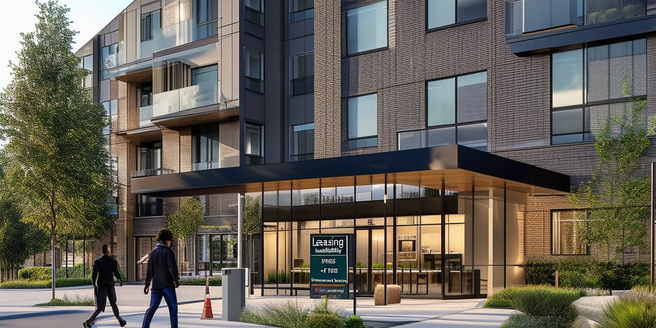Understanding Apartment Application Fees

What Are Apartment Application Fees?
Apartment application fees are charges that potential renters must pay when they apply to rent an apartment. These fees are used to cover the costs of processing the application, which may include background checks, credit checks, and administrative expenses. For someone working on a tight budget, these fees can be a significant concern. The amount of these fees can vary greatly depending on the location and the specific policies of the property management company. Therefore, it’s a good idea to inquire about these fees ahead of time. Additionally, some property management companies might offer discounts or waive these fees during promotional periods. It’s essential to understand what these fees cover to avoid any surprises during the application process.
Why Do Landlords Charge Application Fees?
Landlords charge application fees to offset the costs associated with vetting potential tenants. These costs often include running credit reports, performing background checks, and processing paperwork. The fees collected serve to cover administrative expenses, such as the time and effort required to gather and review necessary documents, as well as the cost of services used to verify an applicant’s financial and criminal history.
Application fees also serve as a preliminary filter to ensure that only serious applicants move forward in the rental process. By charging a fee, landlords can gauge an applicant’s commitment to renting their property. This helps landlords save time and resources by focusing on applicants who are more likely to meet their rental criteria and can afford the rental property. Additionally, the fees can deter individuals who are not genuinely interested or who may have a history of not following through on rental applications. This vetting process ultimately leads to a more efficient and streamlined rental process for both landlords and potential tenants.
How Much Can You Expect to Pay?
The amount you can expect to pay for apartment application fees can vary widely, influenced by several key factors. In some cities, fees may be as low as $25, which could be more typical in less competitive rental markets. Meanwhile, in other cities, especially those with a high demand for housing, application fees can exceed $100. Factors that can influence the cost include the rental market’s competitiveness, meaning how many people are vying for the same rental properties, and the price range of the property, as higher-end properties might have higher fees. Additionally, specific requirements of the property management company also play a role; for example, some companies might charge more for background checks or other administrative tasks. It’s important to ask about application fees upfront to ensure they fit within your budget and to avoid any surprises. Being informed about these fees ahead of time allows you to plan better and ensures that you don’t encounter unexpected costs during your apartment search.
Ways to Reduce or Avoid Application Fees
There are several strategies to reduce or avoid paying apartment application fees. One way is to negotiate with the landlord or property manager, especially if you have a strong rental history and excellent credit. Some landlords may waive the fee if you agree to a longer lease term. Additionally, looking for apartments that do not require application fees or applying during promotions can also help you save money.
Sometimes, apartment complexes run special deals that include waiving application fees to attract more renters. Networking with friends or family to get recommendations for landlords who are flexible about fees can also be beneficial. By knowing your options and being proactive, you can significantly reduce or even eliminate application costs.
Lastly, consider joining housing groups on social media or community boards where people often share tips and information about fee-free apartments. Many cities have online communities where renters discuss their experiences and can point you toward fee-free options. This grassroots approach can often yield surprising results and help you find apartments that you might not have discovered through traditional means. By implementing these strategies, you can effectively manage and potentially avoid the financial burden of apartment application fees.
What to Do If Your Application Is Denied
If your apartment application is denied, the first step is to understand why. Request a detailed explanation from the landlord or property manager. This can provide insight into areas you need to improve for future applications. Once you receive the detailed explanation, carefully review it to pinpoint specific reasons for the denial. If the denial was due to issues with your credit report, obtain a copy and take steps to address any negative marks. You might have unresolved debts or late payments that need attention. Make a plan to pay off these debts or work on improving your credit score over time. Finally, consider seeking rentals with more flexible criteria or lower requirements. Look for properties that cater to individuals with less-than-perfect credit or those that are willing to negotiate terms based on your unique situation. Additionally, consider offering a larger security deposit or getting a co-signer to strengthen your future applications.